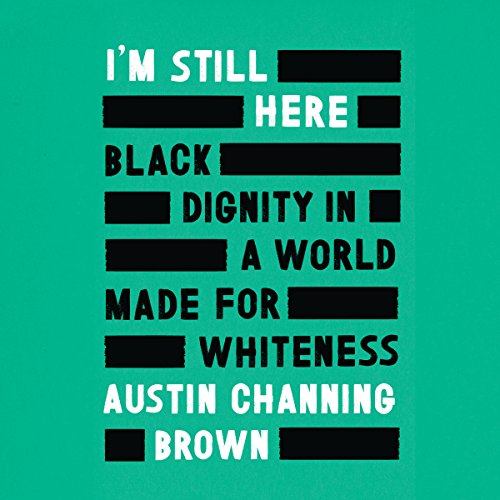
From a leading new voice on racial justice, an eye-opening account of what it’s like to grow up black, Christian, and female in white America, in this idea-driven memoir about how her determined quest for identity and understanding shows a way forward for us all.
Austin Channing Brown’s first encounter with a racialized America came at age seven, when she discovered her parents named her Austin to deceive future employers into thinking she was a white man. Growing up in majority-white schools, organizations, and churches, Austin writes, “I had to learn what it means to love blackness”, a journey that led to a lifetime spent navigating America’s racial divide as a writer, speaker, and expert who helps organizations practice genuine inclusion.
In a time when nearly all institutions (schools, churches, universities, businesses) claim to value “diversity” in their mission statements, I’m Still Here is a powerful account of how and why our actions so often fall short of our words. Austin writes in breathtaking detail about her journey to self-worth and the pitfalls that kill our attempts at racial justice, in stories that bear witness to the complexity of America’s social fabric – from Black Cleveland neighborhoods to private schools in the middle-class suburbs, from prison walls to the boardrooms at majority-white organizations.
For readers who have engaged with America’s legacy on race through the writing of Ta-Nehisi Coates and Michael Eric Dyson, I’m Still Here is an illuminating look at how white, middle-class Evangelicalism has participated in an era of rising racial hostility, inviting the reader to confront apathy, recognize God’s ongoing work in the world, and discover how blackness – if we let it – can save us all.

Austin Channing Brown joins the ranks of vein-opening memoirists, … Austin Channing Brown joins the ranks of vein-opening memoirists, offering her story for anyone who will choose to listen. Well worth the read.
The most import book of the year. The impacts of white cultural norms on people of color are invisible to white people. That means in addition to overt racism and white supremacy, thereâs also millions of well-meaning white Americans who unknowingly make life more difficult for people of color.This book helps change that. It offers white readers an understanding of what is so often invisible to us, and how our actions impact other people every day.Of course, this book is even more powerful as a work of…
A Necessary Read for Anyone Engaged in Racial Justice As a white man, I have little access to the experiences of people who have been systematically barred from places of power and privilege in our culture. Thank God for authors like Austin, who – with grace, courage, clarity and wit – invite me to see the world through their eyes. I’M STILL HERE is a powerful look at our world from the perspective of a person excluded by many of the structures and systems that benefit a person like me. This book is challenging, prophetic and beautiful. It’s a…